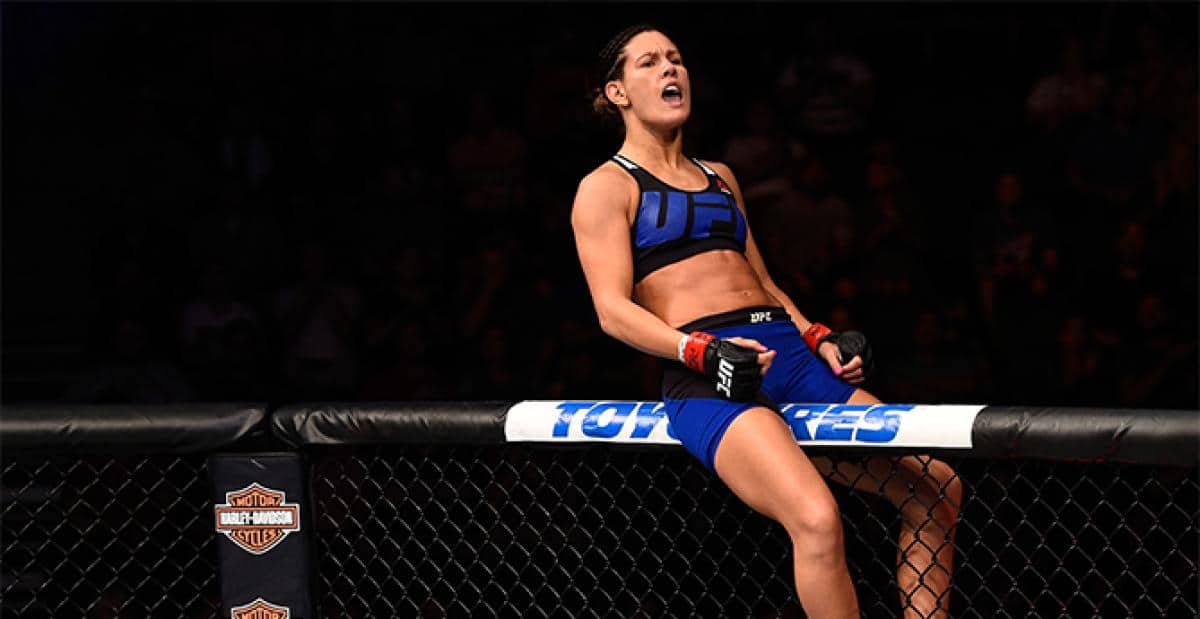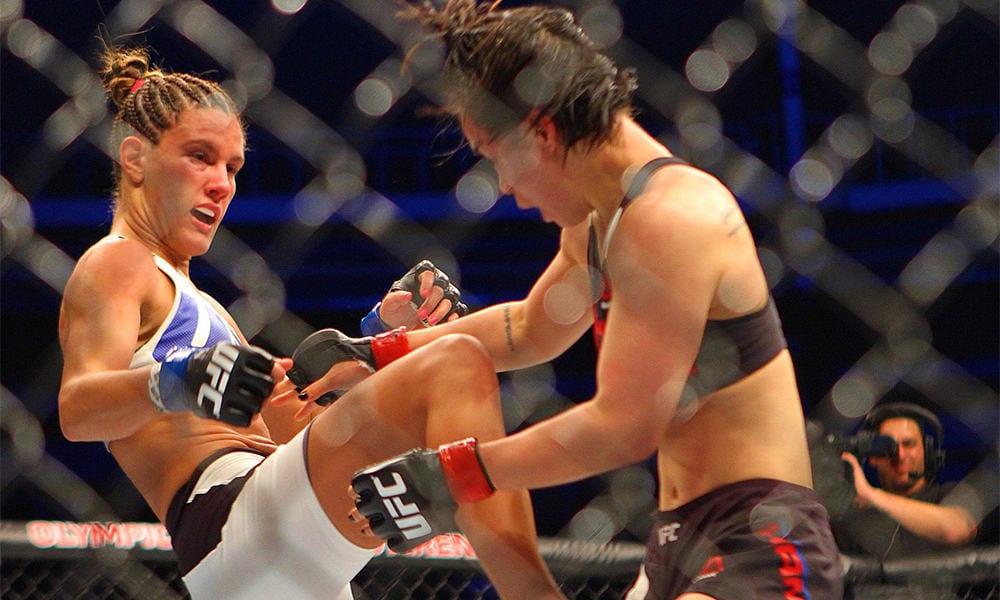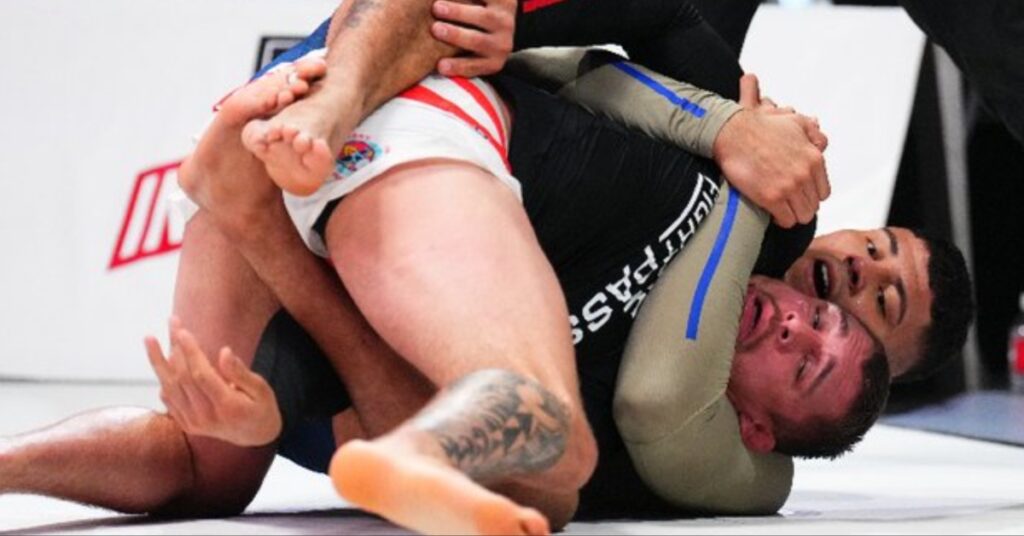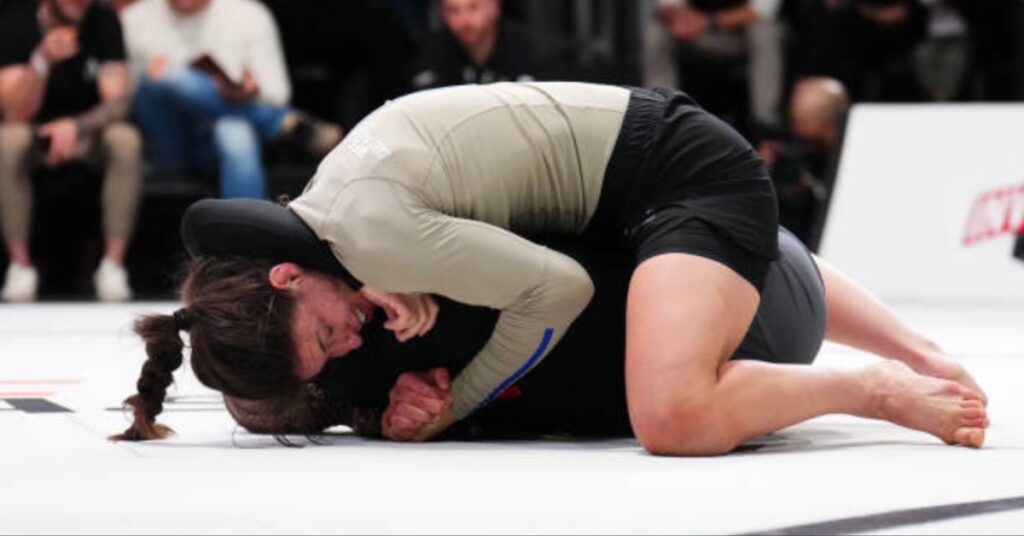UFC Strawweight Cleared Of UFC 211 Doping Case

The UFC has determined Cortney Casey was not abusing any prohibited substances while competing at UFC 211 earlier this year.
Sanctions levied by the Texas Department of Licensing and Regulation (TDLR), however, still remain. It was announced by Jeff Novitzky, the UFC’s vice president of athlete health and performance, yesterday (Thurs. June 22, 2017) that the promotion and the TDLR received the results from Casey’s ‘B’ sample, which came back negative for banned substances in isotope-ratio mass spectrometry (IRMS) testing.
Initially, Casey’s ‘A’ sample returned over the Texas threshold of 4-to-1 for elevated testosterone-to-epitestosterone levels. As a result, Casey was handed a three month suspension by the TDLR in addition to having her win over Jessica Aguilar at UFC 211 this past May overturned.
Novitzky commented on Casey’s situation and expressed his displeasure for how the TDLR is handling the situation (quotes via MMA Fighting):
“Her slightly elevated T:E ratio was just a product of her natural physiology and not anything she did wrong,” Novitzky said. “She didn’t cheat. A T:E ratio, in and of itself — especially mildly high — is never grounds for a public announcement of a positive test.”
“I believe it’s sickening how Cortney has been treated by the Texas commission throughout this,” Novitzky said. “From my experience, the worst thing you can do in anti-doping is a public announcement of a false positive test and that’s what Texas did to her.”
“The only good thing that I can say to come out of this is it’s a good example of what USADA and what I can do in my position to ensure athletes get their proper due process when it comes to athletic commission drug testing,” Novitzky said. … “There’s been some criticism and I think we’ve educated people on it, but there’s been criticism from media and commissions on why USADA takes so long to come back with results. I think this is a glaring example of why. When USADA announces something publicly, they’re 100 percent sure. They’ve dotted all the i’s and crossed all the t’s.”

Susan Stanford, a spokesman for the TDL, stated that she could not confirm the department had received Casey’s ‘B’ sample and determine it was clean, as the investigation remains open:
“At this point the Casey case is still under review,” Stanford said.
“The Texas Department of Licensing and Regulation (TDLR) consistently reviews all Combative Sports program rules, including those related to anti-doping,” Stanford said. “During the last review of the rules TDLR received a single public comment related to drug testing procedures. That comment sought to include all prohibited drugs in the standard testing panel.
“The Department welcomes additional comments about anti-doping and other concerns from the public and industry affecting the combative sports program.”
Even if the decision is overturned by the Texas department, Casey herself fears that she’ll always be viewed as a performance enhancing drug (PED) abuser for the rest of her career:
“Even now with the result in my favor, people will just say I found a loophole,” Casey said. “I will always be considered a cheater in some people’s eyes. If you look at the science, there is no loophole to it. It sucks. It just sucks.”






